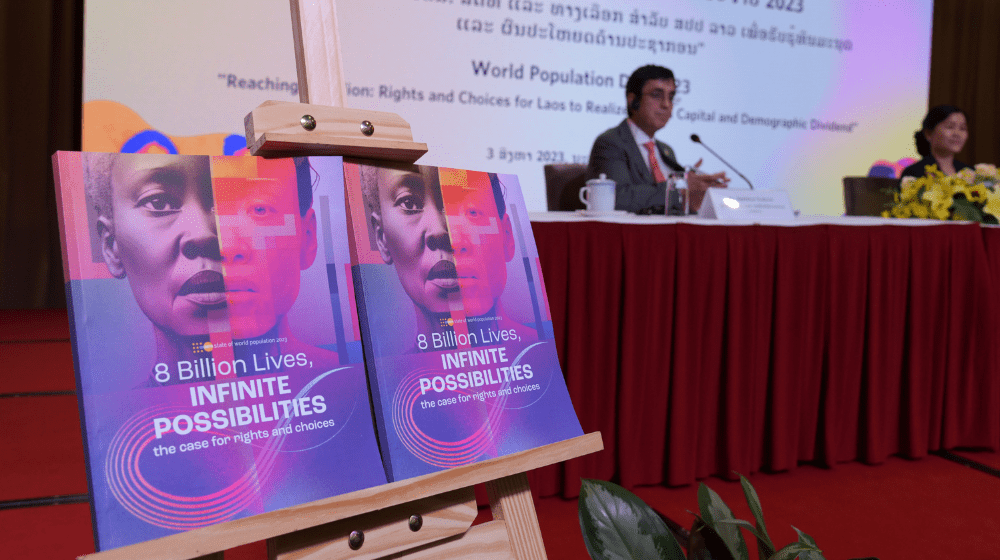3 August 2023, Vientiane, Lao PDR - To commemorate World Population Day on 3 August, representatives from Ministries, United Nations and partners gathered today to raise public awareness about the inter-sectoral approach to population and development issues particularly the demographic dividend and human capital.
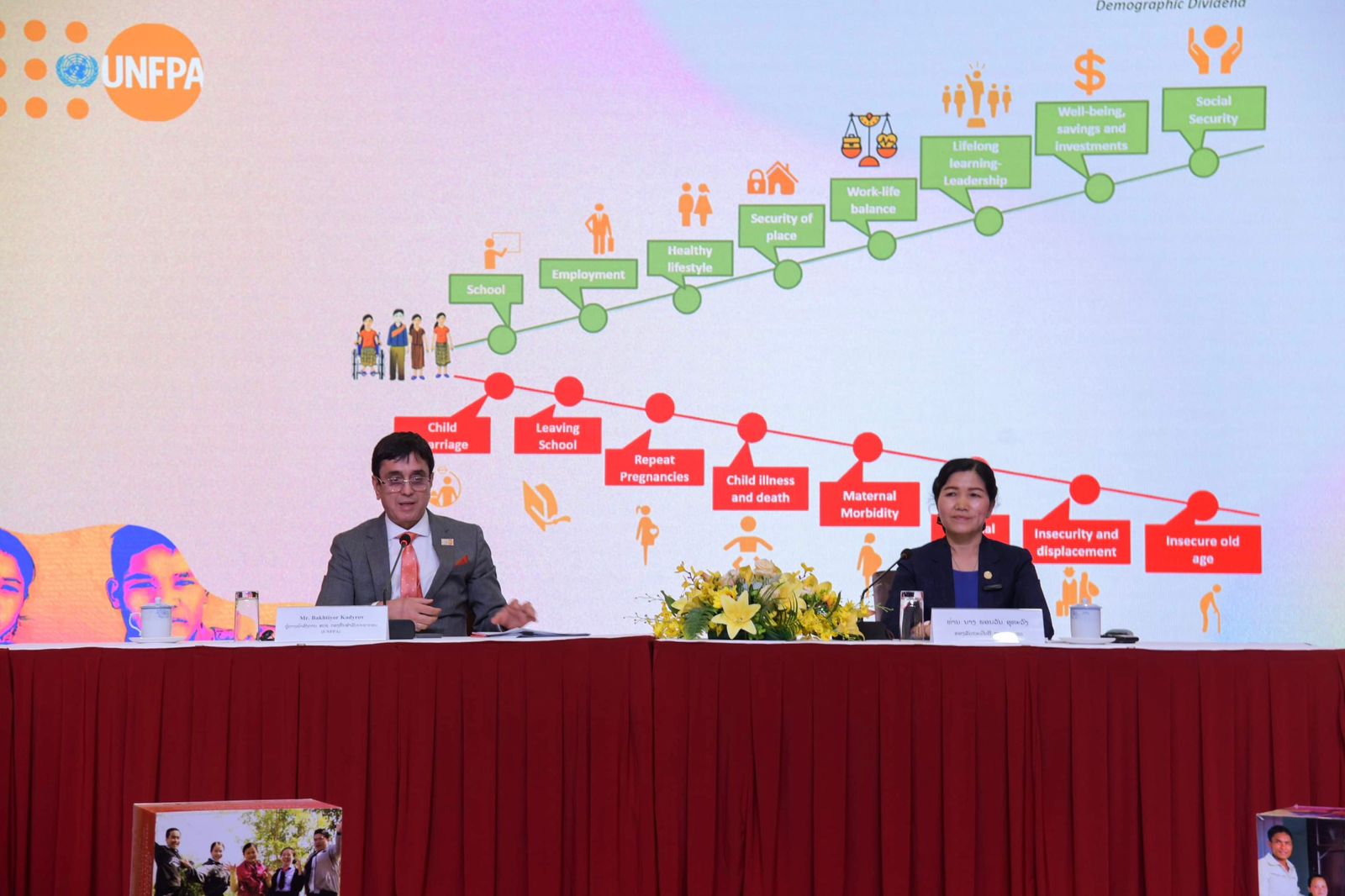
The celebration was led by H.E. Mme Phonvanh Outhavong, Vice Minister of Planning and Investment (MPI) and Dr Bakhtiyor Kadyrov, United Nations Population Fund (UNFPA) Representative, to mobilise support and accelerate the implementation of the National Population and Development Policy (NPDP 2019-2030), and International Conference on Population and Development Programme of Action (PoA) in Lao PDR.
The theme of World Population Day this year, ‘Reaching 8 million: Rights and Choices for Laos to Realise Human Capital and Demographic Dividend,’ conveys the sense that it is now the perfect time to catalyse an informed conversation around population dynamics in the lead-up to the Lao PDR reaching 8 million population in 2027.
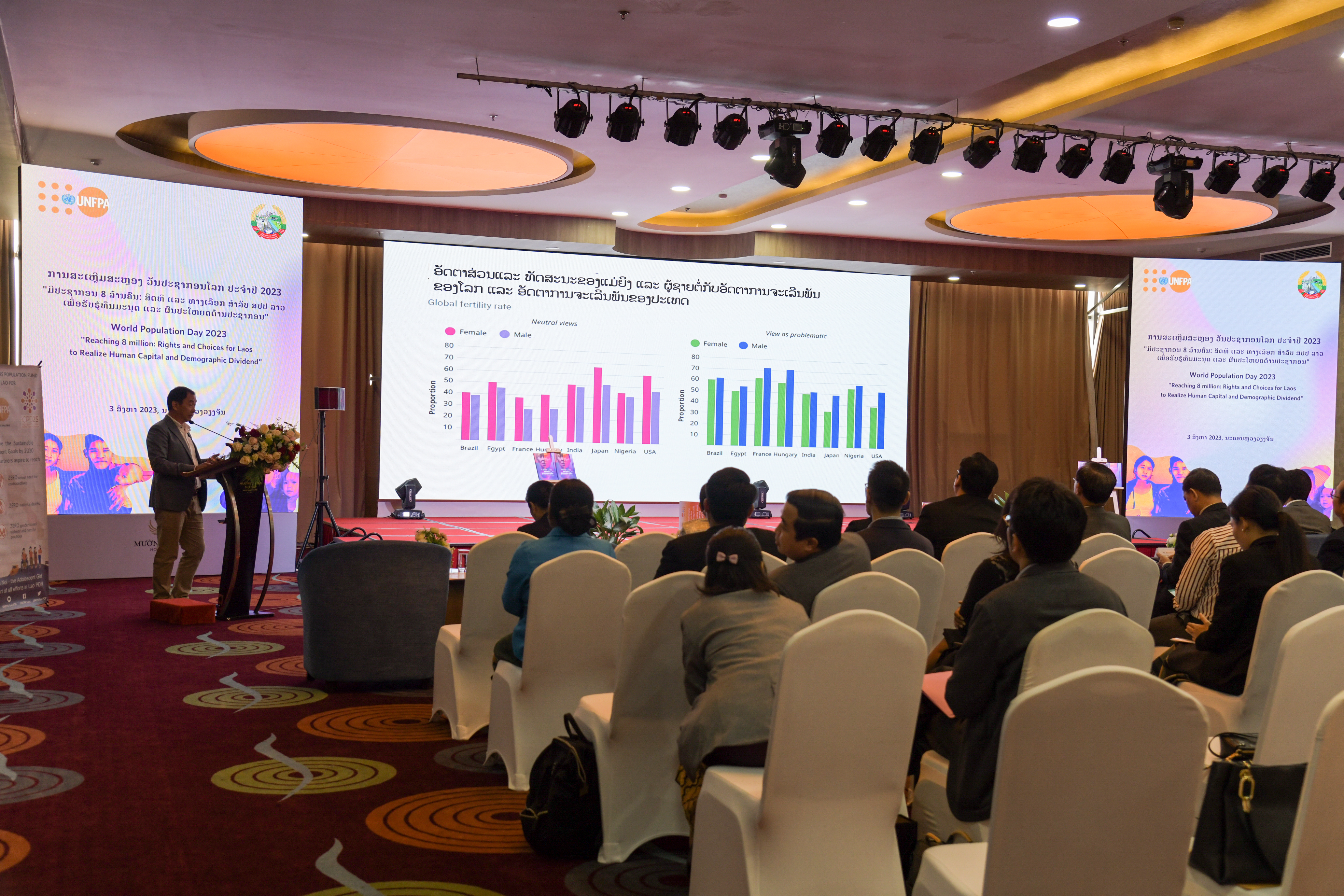
Lao PDR is in the middle stage of its demographic transition. Achievements in health, including Sexual and Reproductive Health (SRH), have resulted in a significant drop in mortality and fertility, shaping a rapid age structural transition. There are positive trends in key indicators such as contraceptive prevalence rate (CPR). According to the Lao Social Indicator Survey (LSIS II), the use of modern contraceptive methods among married women aged 15-49 has increased from 42% in 2011 to 49% in 2017. Adolescent Birth Rate reduced from 94 for every 1000 adolescent girls in 2011/2012 to 83 per 1000 in 2017. As a result, the country now benefits from a sizable adolescent and young population, creating a one-time demographic window of opportunity that could drive higher economic growth if adequate investments are made in human capital development.
However, within the context of the demographic shift, Lao PDR is also facing challenges, particularly economic slowdown, which could affect human capital financing and hamper the realization of the demographic dividend. This could lead the country into increasing vulnerabilities and demographic loss. Hence the joint efforts on promoting Sexual and Reproductive Health and Rights, empowering women and girls, investing in education and skills development, including Comprehensive Sexuality Education, and building demographic resilience are of utmost importance.
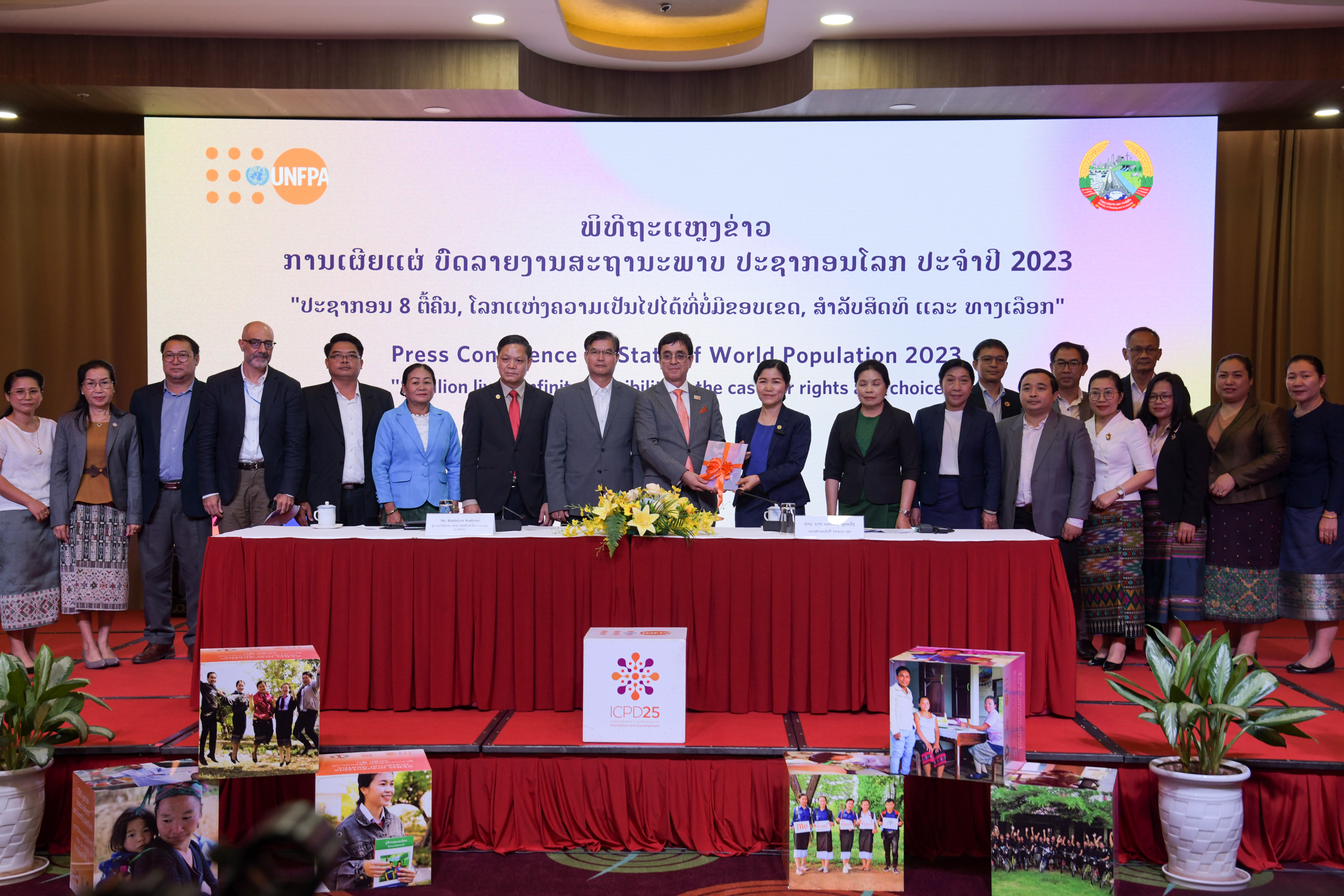
On this occasion, MPI and UNFPA also launched “State of World Population Report 2023: 8 Billion Lives, Infinite Possibilities - The case for rights and choices”, which discusses the milestone of 8 billion recently reached by the human population and the narratives surrounding population change. In particular, discourses which put forward ideas of 'too many' or 'too few' people and the harm this can cause women and girls whose reproductive choices are on the line were intensely focused.
In this respect, moving away from the rhetoric of “too many” means recognizing gains in human survival and longevity. Moving away from “too few” means recognizing that women are increasingly able to plan their families according to their circumstances. Anxieties about “too many” or “too few” can lead to the subordination of women’s reproductive autonomy. Thus, it is key to put trust in the wisdom of women and families who, when supported and offered choices, can make sound and sustainable choices. A woman who has control over her body and access to services to support her choices not only gains greater autonomy but also benefits from advances in health, education, income and safety. The idea is that what really matters is not population, per se, but people.
“With over half of the population aged between 10 and 35 years, Lao PDR has one of the youngest populations in the region, which will join the workforce in the next two decades, creating a one-time demographic window of opportunity. Harnessing this demographic dividend, which is economic growth achieved by having proportionally more people of working age, depends on the empowerment, education and employment of the people. Realizing the demographic dividend requires addressing child marriage/early union, and teenage pregnancies, ensuring universal access to sexual and reproductive health care, including family planning, as well as advancing gender equality and the empowerment of women, and the elimination of all kinds of violence against women. This also requires population data from the 2025 Census, various surveys and administrative sources for evidence-based priority setting and development interventions” said Dr. Bakhtiyor Kadyrov, UNFPA Representative in Lao PDR.
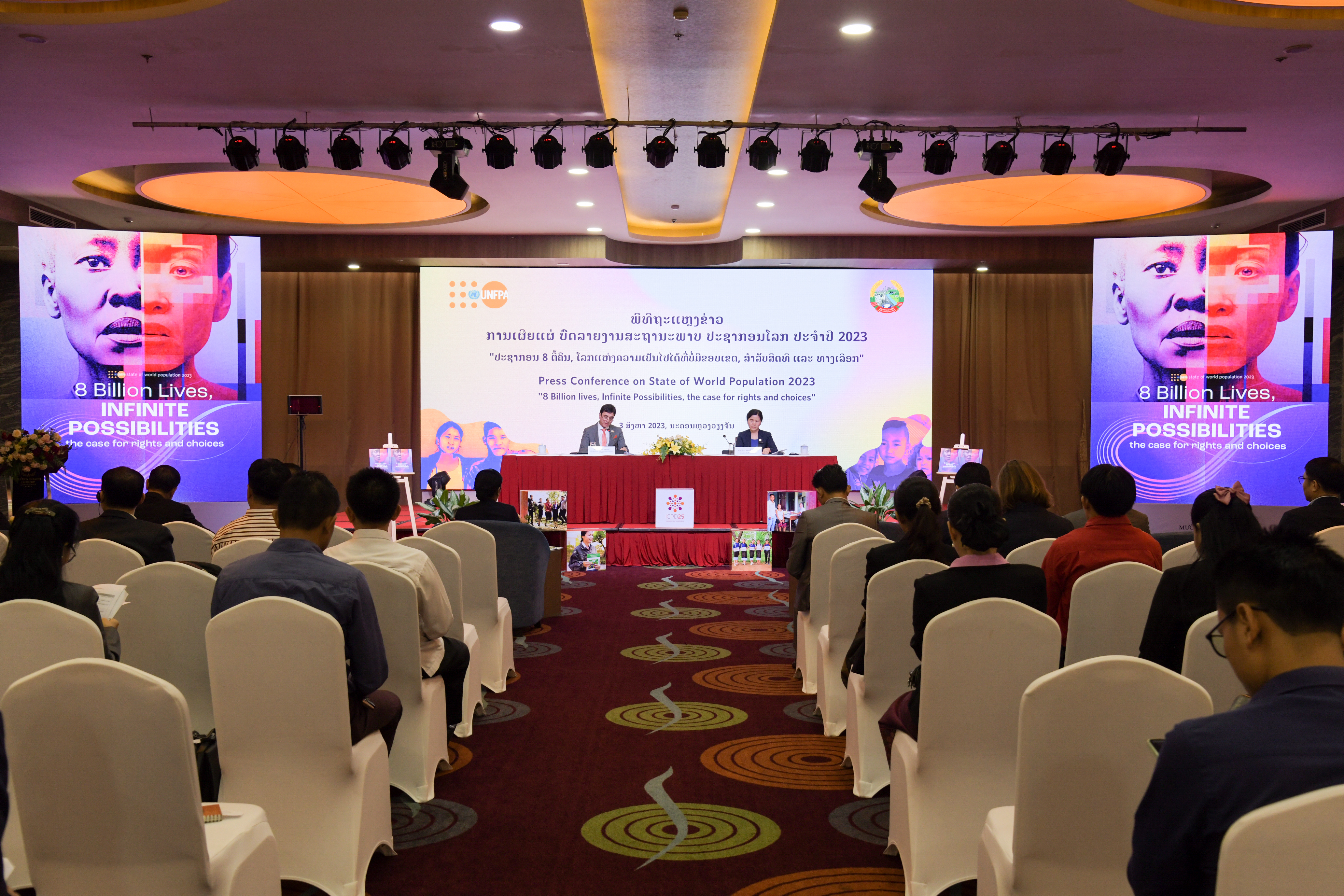
The celebration concluded fruitfully with discussions on infinite possibilities to take advantage of the demographic shift and harness the demographic dividend in Laos, ensuring the rights and choices of people and calls for immediate investments in human capital, especially in women and girls, youth and those left behind.
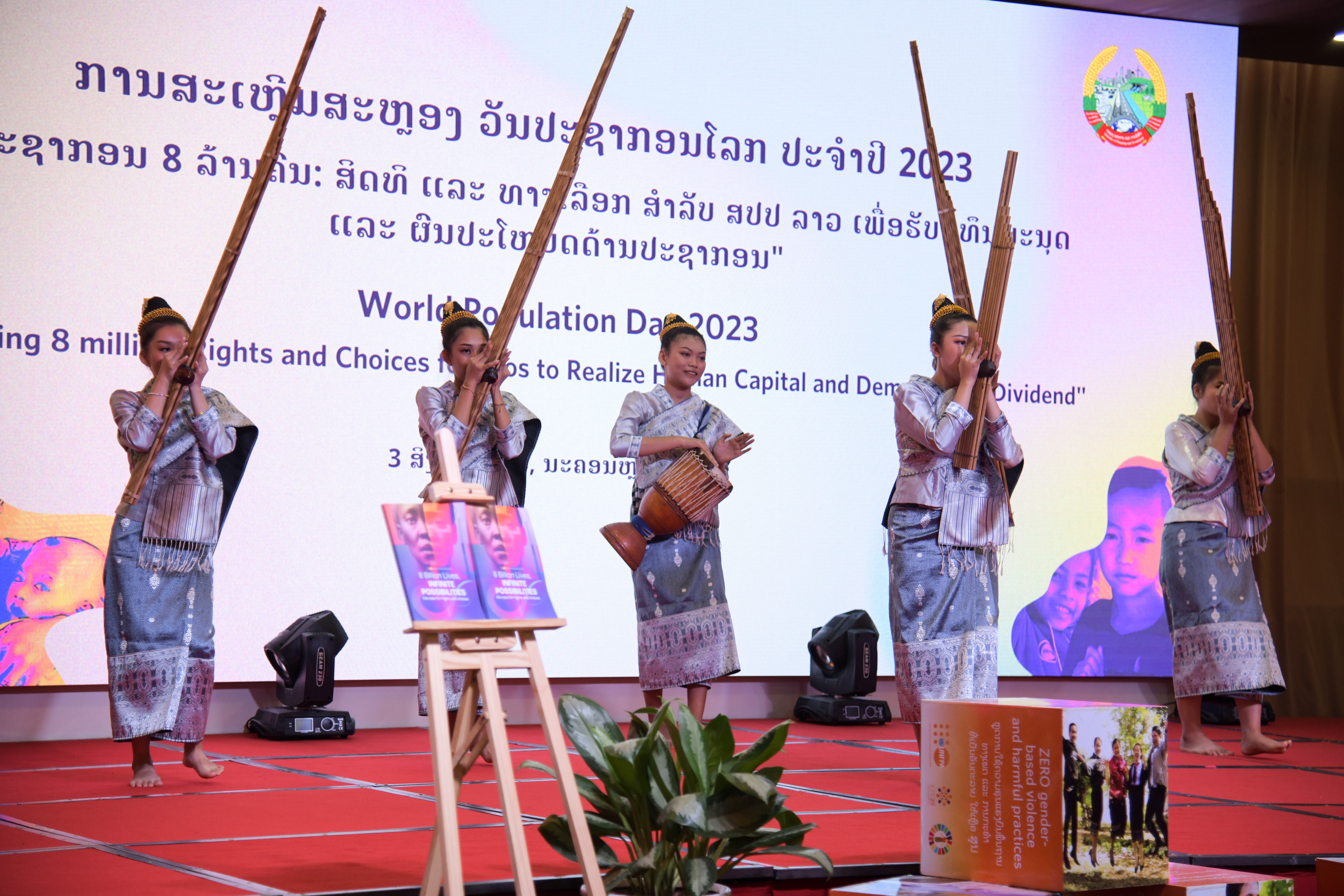
***
UNFPA, the United Nations Sexual and reproductive health agency, works in over 150 countries, including Lao PDR, to achieve zero maternal deaths, zero unmet family planning needs, and zero gender-based violence.
For more information, please contact:

